Review for Seconds [Masters of Cinema]
Introduction
There are many reasons to want to review a film such as Seconds. It’s a classic cult sci-fi from the 1960s for one, an era of creativity and challenging cinema that has served to inspire generations of filmmakers since then. It’s the third in John Frankenheimer’s Paranoia trilogy, following The Manchurian Candidate and Seven Days in May (although I have to admit that I’m yet to watch those two classics), it has a powerful and critically acclaimed performance from Rock Hudson, and it has a fascinating premise. Yet I have to admit that I requested the Seconds review disc for the pettiest of reasons. Seconds also stars Salome Jens. Salome Jens was in an episode of Star Trek the Next Generation, and she also played the female Changeling in 5 years of Star Trek Deep Space Nine. And I have no idea what she looked like, buried as she was under layers of latex and alien make-up. With Seconds, I finally get to see her face!
The irony is of course that Seconds is all about mutability of identity, about hiding behind a new persona. Banker Arthur Hamilton is uncomfortably in the throes of middle age, children having fled the coop, a lifeless marriage, an unsatisfying job, but then he gets a phone call from a dead man, his best friend Charlie. Charlie didn’t die though, he got a new life, and Arthur can have a new life too. Only when he indulges his curiosity, it seems that he has little choice other than for Arthur Hamilton to die, and be reborn as artist Antiochus “Tony” Wilson. So now he’s living the life he always dreamed of, in a house by the beach in sunny California, but when he realises the price that he’s paid, the dream becomes a nightmare.
The Disc
Seconds gets 1:85:1 widescreen 1080p monochrome transfer on this Blu-ray, although given the thin bars on either side, the ratio listed in the booklet as 1.75:1 is more accurate. It’s a great transfer of a vintage film, clean of dirt and print damage, stable with natural film grain, and great contrast and excellent detail. It brings out the oppressive and unsettling cinematography to great effect. The sole audio track with the movie is a PCM 1.0 mono English track with optional SDH English subtitles. The audio is clear and undistorted, although Jerry Goldsmith’s soundtrack is suitably unsettling. The dialogue is clear throughout.
The images in this review have been kindly supplied by the distributor.
Extras
The disc boots promptly to a static menu.
You’ll find a couple of very useful commentaries on the disc. The John Frankenheimer commentary dates from the 1997 laserdisc and it’s full of useful information on the making of the film, easy to listen to if occasionally technical, and it can be gappy.
The Adrian Martin commentary was recorded for this release, and in it the Film Scholar offers a more critical appraisal of the film and its themes. Again this is very easy to listen to, and offers some intriguing observations.
Kim Newman offers more insight in a 20:02 1080p conversation, as he looks at the paranoia trilogy, and Seconds’ place in it.
Finally on disc, there is the theatrical trailer. 2:12 and 1080p
This being a Eureka Masters of Cinema release, you’ll also get a 28-page booklet with essays on the film from Mike Sutton and David Cairns.
Conclusion
There have been countless films documenting the male midlife crisis, a lot of them comedies like The Seven Year Itch, The Woman in Red, and Groundhog Day, as well as more than a few dramas like Falling Down and American Beauty. It’s a well trawled genre, ever relevant as balding men with paunches insist on buying sports cars, chasing after women half their age, all in an embarrassing attempt to recapture their youth. But Seconds takes a closer look at the psychology of such urges, and presents an observation of the midlife crisis that is recognisable, but unsettling and at times downright terrifying, as one man, Arthur Hamilton, finally gets the life that he dreamed of, only to realise that he never really wanted it.
How he gets it is frightening in the first place, the one element of science fiction in the plot that serves as the twist in society that makes us re-examine our own. It’s one of those Big Brother corporations that appear to know everything about everyone, and who actively pursue their new clients on the strength of recommendations from their old ones. So it is that Arthur Hamilton is surreptitiously contacted with an offer of a new life, and a mysterious address, but with little else in the way of information. The only decision that Arthur gets to make is to indulge his curiosity, and that is all that’s needed to trigger the trap. By walking through the door, he’s as good as accepted the offer, and the company will do whatever it takes to get him to sign the contract, but it wears a kindly and genial face while it does so.
Through extensive plastic surgery and medical and physical conditioning, middle-aged and tired Arthur Hamilton becomes young and vital artist Tony Wilson, and who gets parachuted into his new life in California, with a lavish apartment, and personal servant, free to live the life of his dreams, without the ennui of his previous existence. Or so it is expected. Of course a change of face doesn’t automatically bring with it a change of identity, and how can a banker become an artist overnight? The introverted, soft-spoken man is still there, reluctant to engage with the outside world despite the gentle urging of his servant. It’s during a solitary walk on the beach that he meets a free-spirited woman named Nora, who herself has taken a more conventional route to reinventing her life, simply by walking away from the old. She befriends him, and tries to take him into her world to mixed effect. It’s when he tries to take back his old life that things go horrifyingly wrong, for while the company may be free with second chances; third chances demand a high price.
This film wouldn’t work without a solid central performance, and Rock Hudson is magnificent in the role. Of course much is made about his own life, his ‘hidden identity’ and how he was reshaped into a movie star, and how that reflects on the role he plays here, but what I was entranced by was how he managed to capture John Randolph’s mannerisms and bearing, the actor who played Arthur Hamilton, it really does feel like an old man in a young body. It’s a performance that makes the whole film possible.
Like any good sci-fi movie, it’s also a film that speaks to generations of audiences, and Seconds is a film that’s more relevant now than it was back in the sixties. Certainly the themes of midlife crisis, of wanting to hold onto our youth are eternal. But while the idea of changing identity through plastic surgery has remained a fictional prospect alone, plastic surgery is no longer solely a province of the wealthy and the famous, and the idea of holding onto a younger appearance through surgical intervention is something that many people embrace. More relevant than ever is the idea of identity theft. One moment in an airport, where a stranger recognises Tony Wilson suggests that Arthur Hamilton was parachuted into an existing life, not given a whole new one, while these days the identity theft we have to deal with is technological, not physical. But the film also explores the nature of identity too, asking just how is a person’s self image linked to his physical appearance. These are ideas that have inspired filmmakers down the years, and given the paranoiac take on the subject in Seconds, I begin to wonder if Paul Verhoeven saw this film before making Robocop and Total Recall.
Speaking of relevance, Seconds also has much to say about materialism, the pursuit of wealth, of living the life that is expected. Arthur Hamilton has lived the life that was expected, steady job, wife, family, being the breadwinner, but never reaping the rewards of his labour. It’s a hollow, empty existence, but the new life he gets is not much better, I believe the colloquial term of the period was ‘dropping out’, although with the apparent wealth of Tony Wilson it’s less a hippy commune than a hedonistic dalliance. The Bacchanalian orgy is very much of its time, but it represents the empty pursuit of spirituality without understanding what spirituality actually is, just going through the motions of recreating ancient rituals. The same is true of the parties, the cocktail set, the mingling and networking with people that you will never truly know, and in truth care little for.
Where Seconds really impresses is the sense of paranoia, the unsettling terror that the main character goes through, accomplished through stunning cinematography, great music, and excellent performances. It’s also a perfect reminder that you don’t need a massive special effects budget to make a genuine science fiction film; all you need is a thought provoking idea. This Masters of Cinema release once again delivers in terms of audio visual quality, while the extras package is well worth taking the time to appreciate.
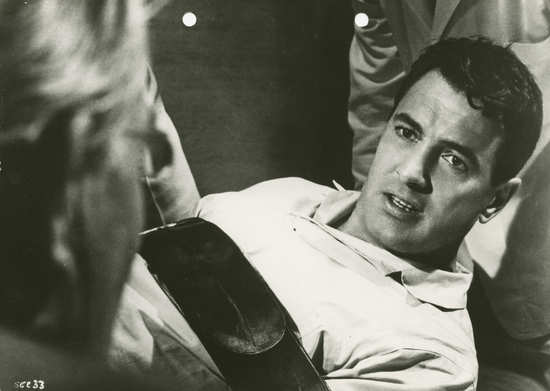
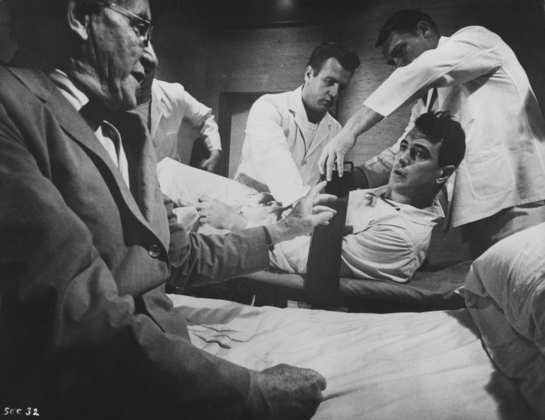
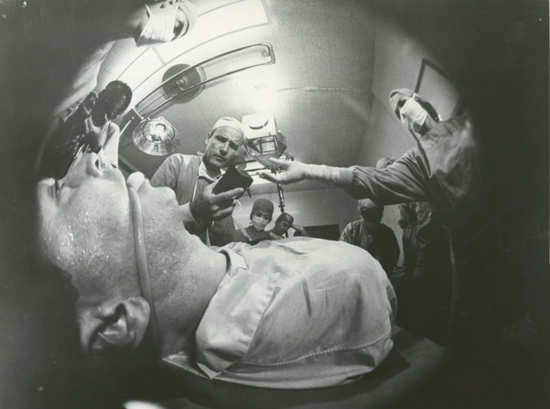
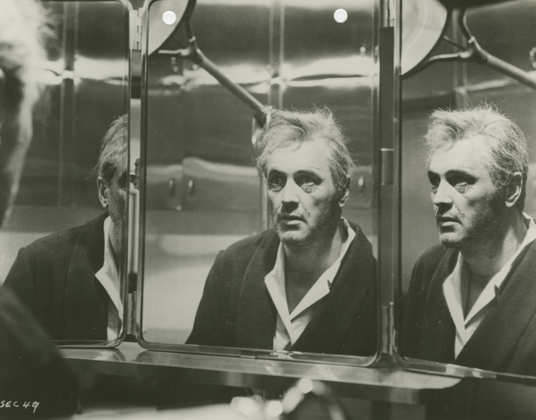
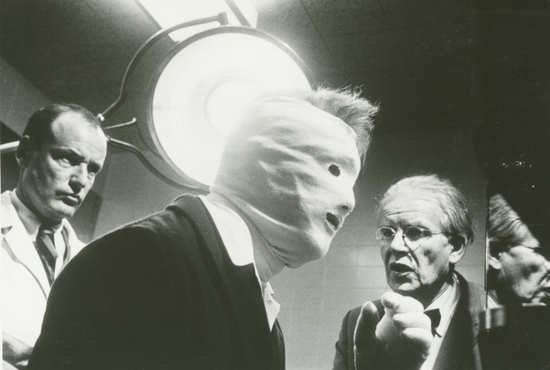
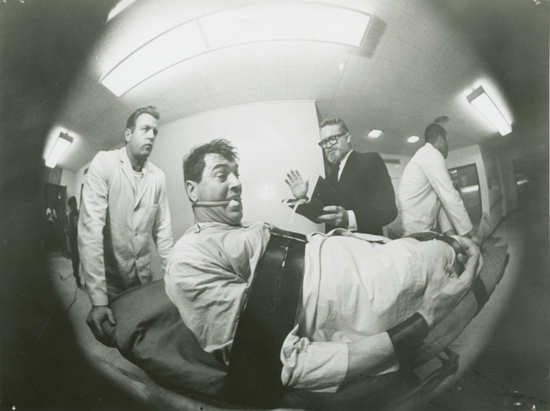
Your Opinions and Comments